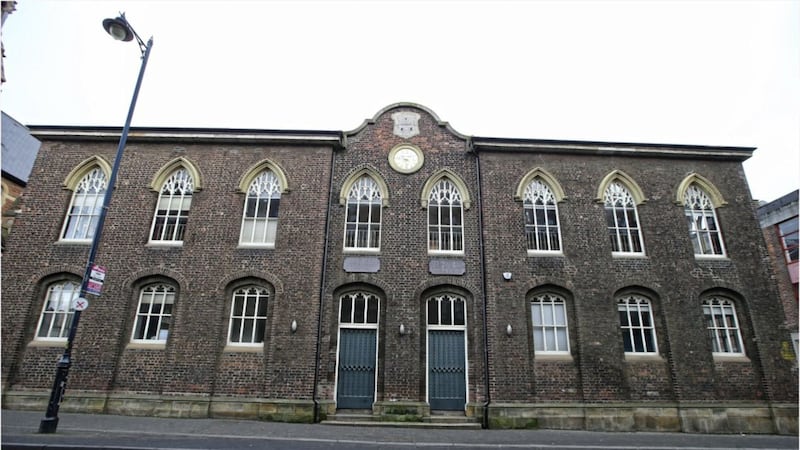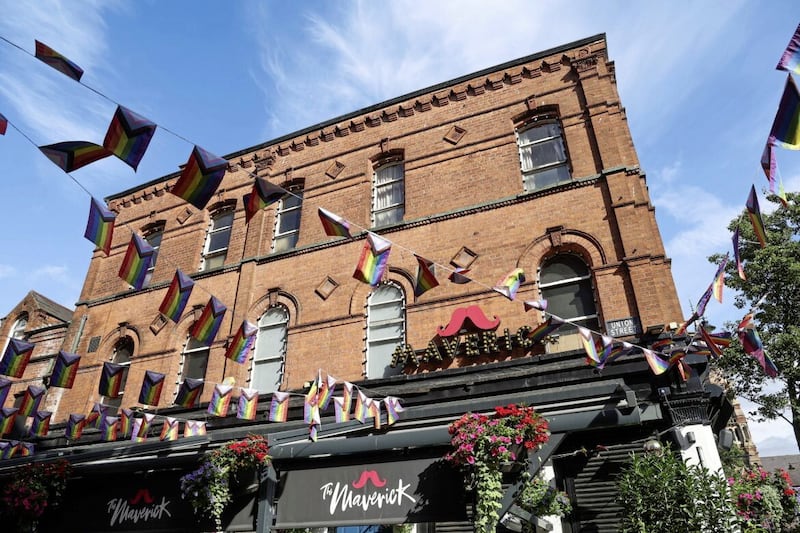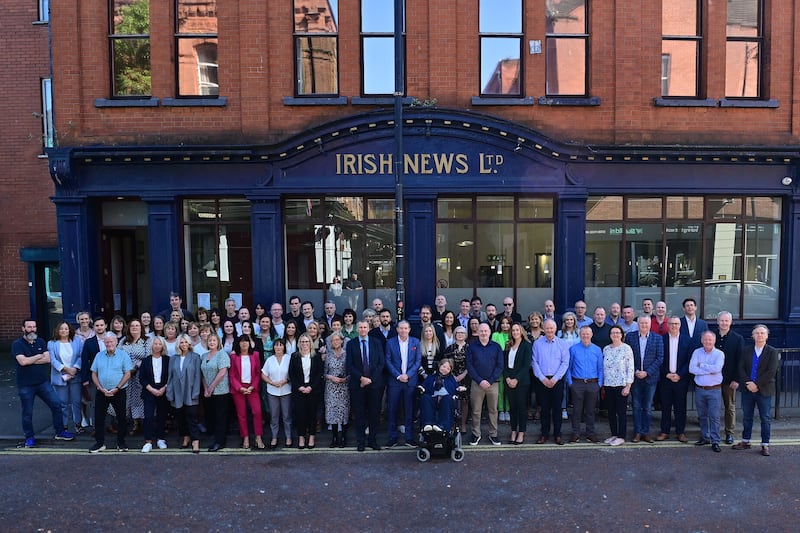THE first Catholic school to be built in Belfast was constructed almost 200 years ago. A short distance away today, a new modern school is taking shape, the eighth to serve the inner-city parish of St Patrick's.
::
AT one end of Donegall Street stands a striking squat and brown-bricked, Georgian-era building.
It has pointed Gothic windows, a Dutch gable and two impressive front doors, made from wood with iron bolting.
Each door has a stone plaque above it, the etched lettering revealing that it once housed two diverse schools.
This was the site of the first, and second, school to serve one of Belfast's earliest Catholic parishes - St Patrick's.
St Patrick's National School was built in 1828 on land was donated by the Marquess of Donegall. It had been the site of the town dump.
Almost 40 years later, the teaching order of the Christian Brothers arrived in Belfast.
They started at Barrack Street but moved quickly to Donegall Street where they shared the building with the National School.
Historian Eamon Phoenix explained the difference.
"The National School catered for a wider range of children. The Christian Brothers had a particular mission, the ragged school, to bestow the `three Rs' on the newly arrived poor, people at the bottom of the social ladder, coming from the countryside looking for work," he said.
"In the 1920s and 30s it also served as a weekend school for the Italian community to teach English to the people in Little Italy."
There have been several schools serving the parish since, all gradual offshoots from Donegall Street.
They included The Convent of Mercy Primary, which was beside the Mater Hospital and Hardinge Street School, which was also run by the Christian Brothers.
A new St Patrick's PS on North Queen Street was built in the late 1950s, designed to replace the National School, which had changed its designation. However, Donegall Street continued to be used until the mid 1970s as an overflow facility for other schools struggling to keep up with population growth. St Patrick's on North Queen Street would shut down in 2001.
The brothers also opened Edmund Rice boys' school on Pim Street in the 1960s.
The 'old' St Patrick's name then became the 'new' name of the amalgamated Edmund Rice and Star of the Sea girls' schools in 2013.
After a long wait, work has begun on an £11.4 million new building.
The school, which has close to 550 pupils, is expected to be ready by June 2021.
Parish priest Fr Eugene O'Neill spoke about the history of the school at a ceremony to mark the start of building work.
"I am acutely aware that this is the eighth school founded in and by this parish since the foundation stone of the first St Patrick's School was laid by Bishop Crolly in July 1828 – a building that still stands and adorns Donegall Street with its Georgian splendour," he said.
"Each of those eight schools, a shared venture between church and state.
"It was built in a Belfast then rapidly changing: recovering from the chaos of the Napoleonic Wars and the economic crisis that followed; recovering its sense of confidence; and on the verge of the then unimaginable changes of the industrial revolution that would alter the city forever and make it famous worldwide as a forge of industry. For all that - then unknown - the children of 1828 were being prepared."
Almost 200 years on, he added, as foundations were again being laid, "we look out on a similar landscape of uncertaintly; recovering our poise after much turbulence; with the city transforming around us; and looking out on a world changing so rapidly that we can barely discern the outlines of the future".
"And the new St Patrick's School will prepare children to take their place as citizens of that world: confident, resourced, flexible, grounded in skills and faith," he said.








